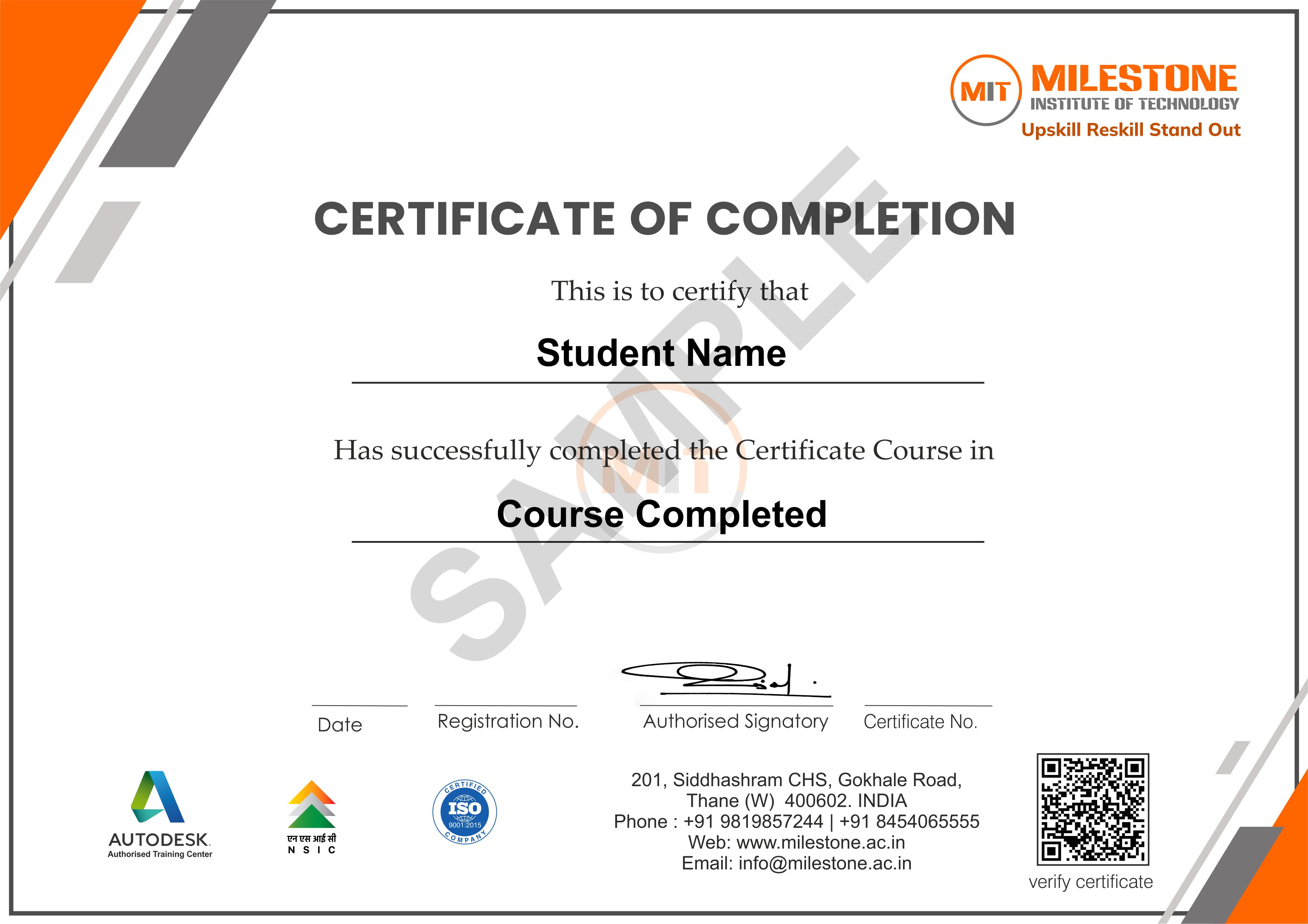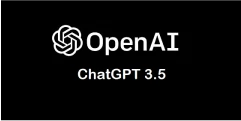-
All Levels
-
26 Weeks
-
MIT Certification
-
Industry Immersion
-
Capstone Projects
Overview
Our MEAN Stack Course in Mumbai equips you with skills in MongoDB, Express.js, Angular, and Node.js. Build real-world web apps, strengthen your full-stack expertise, and become career-ready with hands-on training, expert mentorship, and complete placement support.
- MEAN Stack Developer
- Full Stack Web Developer
- Front-End Developer (Angular)
- Back-End Developer (Node.js & Express)
- JavaScript Developer
- Web Application Developer
- Software Engineer (Web Technologies)
- Freelance Web Developer

Targeted Job
Roles

Training and Methodology
Claim your spot and get complete access to -
Hands-On Development - Practice real coding by building full-stack web apps.
Real-World Projects - Build real-world web apps using MEAN stack tools.
Expert Guidance - Get feedback to sharpen and grow your coding skills.
Why Choose This
Course?
Kickstart Your Career as MEAN Stack Developer
Our MEAN Stack Course in Mumbai is your gateway to a career in web development. Learn MongoDB, Express.js, Angular, and Node.js through hands-on projects and expert-led training. Build real-world skills, gain confidence, and step into full-stack development with clarity.
Register Now-
100% Placement Assistance Program
Step into the industry with strong placement assistance.
-
Real time projects
Develop practical skills with hands-on, career-focused training.
-
Reviews and Feedback
Keep improving with consistent reviews and expert feedback.
Level Up your skills with MEAN Stack Course
-
Master JavaScript, Node.js, and web fundamentals for full-stack success.
-
Work with MongoDB to model and query NoSQL data efficiently.
-
Use Express.js to build RESTful APIs and manage middleware.
-
Develop dynamic Angular UIs with forms and validation tools.
-
Apply JWT, OAuth, and web security best practices effectively.
-
Deploy MEAN apps using PM2, environment configs, and live hosting.
-
Create real-world MEAN projects with full-stack integration.
Tools & Languages You’ll Learn In MEAN Stack Course
Complete MEAN Stack Course in Thane Syllabus
Gain All the Essential Skills with a Single Course.
-
Overview
- Mongo DB
- Express.js
- Angular
- Node.js
-
MongoDB
- Introduction to MongoDB
- Overview of NoSQL Databases
- Differences Between NoSQL and SQL
- Features of MongoDB
- MongoDB Architecture and Components
- Installation and Setup (Local and Cloud)
- MongoDB Basics
- Understanding Databases, Collections, and Documents
- BSON Format and JSON
- Data Types Supported by MongoDB
- CRUD Operations
- Insert, Query, Update, and Delete Operations
- Hands-on Practice with Basic CRUD
- Basic Querying
- Basic Query Operators ($eq, $ne, $gt, $lt, $in, $nin)
- Logical Query Operators ($or, $and, $not, $nor)
- Projection and Filtering
- Cursor and Pagination
- Working with Cursors
- Pagination Techniques
- Aggregation Framework Basics (Introduction)
- Advanced Querying
- Array Queries ($all, $size, $elemMatch)
- Text Search and Geospatial Queries
- Regular Expression Queries
- Working with Timestamps and Dates
- Indexing Basics
- Importance of Indexing
- Types of Indexes
- Single Field
- Compound
- Multikey
- Aggregation Framework
- Stages in Aggregation
- $match
- $group
- $project
- $sort
- $limit
- $skip
- Working with Pipelines and Aggregation Expressions
- Stages in Aggregation
- Schema Design
- Schema-Free Nature of MongoDB
- Best Practices for Schema Design
- Embedding vs. Referencing
- Modeling Relationships (One-to-One, One-to-Many, Many-to-Many)
- MongoDB Administration
- Managing Users and Roles
- Authentication and Authorization
- Backup and Restore
- Monitoring and Profiling
- MongoDB Tools
- MongoDB Compass
- MongoDB Atlas
- Introduction to MongoDB
-
Express JS
- Introduction to Express.js
- What is Express.js?
- Features of Express.js
- Installing Express (npm init, npm install express)
- Creating a Basic Express Server
- Running an Express Server (app.listen())
- Express.js Fundamentals
- Understanding Middleware in Express
- Application-Level vs. Router-Level Middleware
- Writing a Simple Middleware Function
- Understanding Request-Response Lifecycle
- Working with req and res Objects
- Routing in Express.js
- Understanding Routing in Express
- Defining Routes (app.get(), app.post(), app.put(), app.delete())
- Handling URL Parameters (req.params)
- Handling Query Parameters (req.query)
- Route Grouping and Express Router (express.Router())
- Middleware in Express.js
- Built-in Middleware:
- express.json() (Parsing JSON Data)
- express.urlencoded() (Parsing Form Data)
- express.static() (Serving Static Files)
- Custom Middleware
- Error Handling Middleware (app.use((err, req, res, next) => {}))
- Third-Party Middleware:
- morgan (Logging Requests)
- cors (Handling Cross-Origin Requests)
- helmet (Securing Express Apps)
- compression (Improving Performance)
- Working with HTTP Requests and Responses
- Sending Responses (res.send(), res.json(), res.status())
- Redirecting Requests (res.redirect())
- Handling File Downloads (res.download())
- Setting Custom HTTP Headers (res.set())
- Handling Form Data and File Uploads
- Parsing Form Data (express.urlencoded())
- Handling File Uploads using multer
- Storing Uploaded Files Locally or in Cloud Storage
- Working with Cookies & Sessions
- Setting and Reading Cookies (res.cookie(), req.cookies)
- Clearing Cookies (res.clearCookie())
- Using express-session for User Sessions
- Storing Sessions in Databases (connect-mongo)
- Template Engines in Express.js
- Introduction to Template Engines
- Setting Up EJS
- Rendering Dynamic HTML Pages (res.render())
- Passing Data to Templates
- Building a RESTful API with Express.js
- Understanding REST API Principles
- Creating API Endpoints (GET, POST, PUT, DELETE)
- Structuring Express Apps (Routes, Controllers, Middleware)
- Handling JSON Request Bodies (express.json())
- Implementing CRUD Operations
- Working with Databases in Express.js
- Introduction to Database Connectivity
- Connecting to MongoDB with mongoose
- Performing CRUD Operations with Mongoose
- Authentication & Authorization in Express.js
- Introduction to Authentication Methods
- Implementing JWT (JSON Web Token) Authentication (jsonwebtoken, bcryptjs)
- Implementing OAuth Authentication (Google, GitHub) with passport.js
- Role-Based Access Control (RBAC)
- Error Handling & Debugging in Express.js
- Handling 404 Errors
- Creating a Centralized Error Handler
- Using debug for Debugging Express Apps
- Logging Errors (winston, morgan)
- Security & Best Practices
- Protecting Express Apps with helmet
- Preventing SQL Injection & NoSQL Injection
- Avoiding CORS Issues (cors module)
- Rate Limiting API Requests (express-rate-limit)
- Using dotenv for Environment Variables
- WebSockets & Real-Time Communication
- Introduction to WebSockets
- Using socket.io for Real-Time Communication
- Implementing a Basic Chat Application
- Express.js Performance Optimization
- Using Compression (compression module)
- Optimizing Middleware Execution
- Caching Responses (redis, memory-cache)
- Avoiding Blocking Code in Express.js
- Testing Express.js Applications
- Introduction to Testing in Express
- Unit Testing with mocha & chai
- API Testing with supertest
- Writing Integration Tests
- Introduction to Express.js
-
Angular
- Introduction to Angular
- What is Angular and why use it?
- Angular vs other frameworks (React, Vue)
- Angular architecture overview
- Setting up the Angular development environment
- TypeScript Fundamentals for Angular
- Basics of TypeScript (types, interfaces, classes)
- Modules and decorators
- Using TypeScript in Angular projects
- Angular Project Setup
- Creating a new Angular project with Angular CLI
- Understanding project structure
- Running and building Angular apps
- Components and Templates
- Creating and using components
- Component lifecycle hooks
- Data binding (Interpolation, Property binding, Event binding)
- Two-way data binding with ngModel
- Template reference variables
- Directives in Angular
- Built-in directives (*ngIf, *ngFor, ngSwitch)
- Attribute directives (ngStyle, ngClass)
- Creating custom directives
- Pipes in Angular
- Built-in pipes (date, currency, json, slice, etc.)
- Parameterized pipes
- Creating custom pipes
- Services and Dependency Injection
- What are services in Angular?
- Creating and injecting services
- Dependency injection hierarchy
- Singleton services
- Routing and Navigation
- Configuring routes in Angular
- RouterLink and RouterOutlet
- Route parameters and query parameters
- Nested routes & child routing
- Route guards (AuthGuard, CanActivate, CanDeactivate)
- Forms in Angular
- Template-driven forms
- Reactive forms (FormControl, FormGroup, FormBuilder)
- Form validation (built-in & custom validators)
- Error handling in forms
- HTTP and Observables
- Making HTTP requests with HttpClient
- GET, POST, PUT, DELETE methods
- Handling errors in HTTP calls
- Observables and RxJS basics
- Async pipe
- State Management
- Local state with services
- Introduction to NgRx (for large-scale apps)
- Angular Material & UI Components
- Installing Angular Material
- Using pre-built UI components (Buttons, Cards, Forms, Tables)
- Responsive layouts with Angular Flex Layout
- Authentication and Security
- JWT authentication in Angular
- Role-based access control
- Route protection with guards
- Secure API communication
- Advanced Angular Concepts
- Lazy loading modules
- Change detection strategy
- Dynamic component loading
- Custom event emitters and subjects
- Testing in Angular
- Unit testing with Jasmine & Karma
- End-to-end testing with Protractor / Cypress
- Deployment
- Building Angular apps for production
- Deploying to Firebase, AWS, or any server
- Introduction to Angular
-
Node JS
- Introduction to Node.js
- What is Node.js?
- Features of Node.js
- Advantages & Disadvantages
- Installing Node.js
- REPL (Read-Eval-Print Loop)
- What is REPL?
- Evaluating Expressions in REPL
- Loops & Commands in REPL
- Example Usage
- Node.js Core Modules
- Introduction to Modules
- Types of Modules:
- Core Modules (fs, http, path, os, etc.)
- Local Modules (Creating Your Own)
- Third-party Modules (via NPM)
- Node Package Manager (NPM)
- What is NPM?
- Installing & Removing Packages
- Global vs. Local Packages
- Managing Dependencies (package.json)
- Understanding package-lock.json
- Understanding Node.js Asynchronous Programming
- Event-Driven, Non-Blocking Architecture
- Callbacks in Node.js
- Promises (.then(), .catch())
- Async/Await
- Handling Errors in Async Code
- File System (fs Module)
- Reading Files (fs.readFile, fs.readFileSync)
- Writing Files (fs.writeFile, fs.appendFile)
- Deleting Files (fs.unlink)
- Working with Directories (fs.mkdir, fs.readdir)
- Buffers & Streams in Node.js
- What is a Buffer?
- Buffer Operations (Buffer.alloc(), Buffer.from())
- Streams:
- Readable Streams (fs.createReadStream)
- Writable Streams (fs.createWriteStream)
- Duplex & Transform Streams
- Piping Streams
- Creating a Web Server (http Module)
- Creating a Simple HTTP Server
- Handling HTTP Requests & Responses
- Sending JSON & HTML Responses
- Server Listening (server.listen())
- Handling Events (events Module)
- Understanding Event-Driven Programming
- EventEmitter Class
- Creating & Emitting Events (emit(), on())
- Event Listeners
- Working with URL & Query Strings
- Built-in url Module
- Parsing URL Parameters
- Handling Query Strings
- Using querystring Module
- Child Processes (child_process Module)
- Running System Commands (exec, spawn)
- Forking Processes (fork())
- Inter-Process Communication (IPC)
- Error Handling in Node.js
- Understanding Error-First Callbacks
- Using try...catch for Errors
- Handling Asynchronous Errors
- process.on('uncaughtException')
- Debugging & Performance Optimization
- Using console.log() and Debugger
- Debugging with node inspect
- Optimizing File & Network Operations
- Avoiding Blocking Code
- Deploying a Basic Node.js Application
- Understanding Process Managers (pm2)
- Running Node.js on a Server
- Using Environment Variables (process.env)
- Introduction to Node.js

Want to
experience
excellence?
Kickstart your professional journey with Milestone’s industry-focused courses in Mumbai. Join a free demo session now!
Access The Free DemoRecruiters Seeking Skilled MEAN Stack Developer Students
Certification For This
Course
Advance your IT career with our MEAN Stack Course in Mumbai. Build real projects and earn a recognized MEAN Stack Certification.
Register Now

Get in touch today
Frequently Asked Questions
Get all your questions answered about our MEAN Stack Course in Mumbai, covering syllabus, hands-on projects, certification, and career support. Discover the full learning path and begin your journey into full-stack web development with clarity and confidence.
-
Who Can Enroll in the MEAN Stack Course in Mumbai?
Anyone who has completed 10th, 12th, graduation, or holds degrees such as BE, BTech, BCA, MCA, ME, MTech, MSc IT, BSc IT, or a diploma in Web Development, IT, or Software Engineering is eligible to enroll.
-
What Will I Learn in the MEAN Stack Course in Mumbai?
The course covers full-stack development using MongoDB, Express.js, Angular, and Node.js. You’ll learn frontend and backend development, RESTful APIs, authentication, real-time communication, deployment, and more.
-
Does the Course Include Hands-On Projects?
Yes! This course includes practical, real-world projects like building full-stack web apps, creating APIs, and developing end-to-end solutions to sharpen your coding and problem-solving skills.
-
Will I Receive a Certificate After Completing the Course?
Absolutely. After successful completion, you’ll receive a certification from Milestone Institute of Technology, validating your skills in full-stack web development.
-
Is Placement Support Provided After the Course
Yes, we offer dedicated placement support, including resume building, interview prep, and job assistance to help you confidently launch your career in web development.















